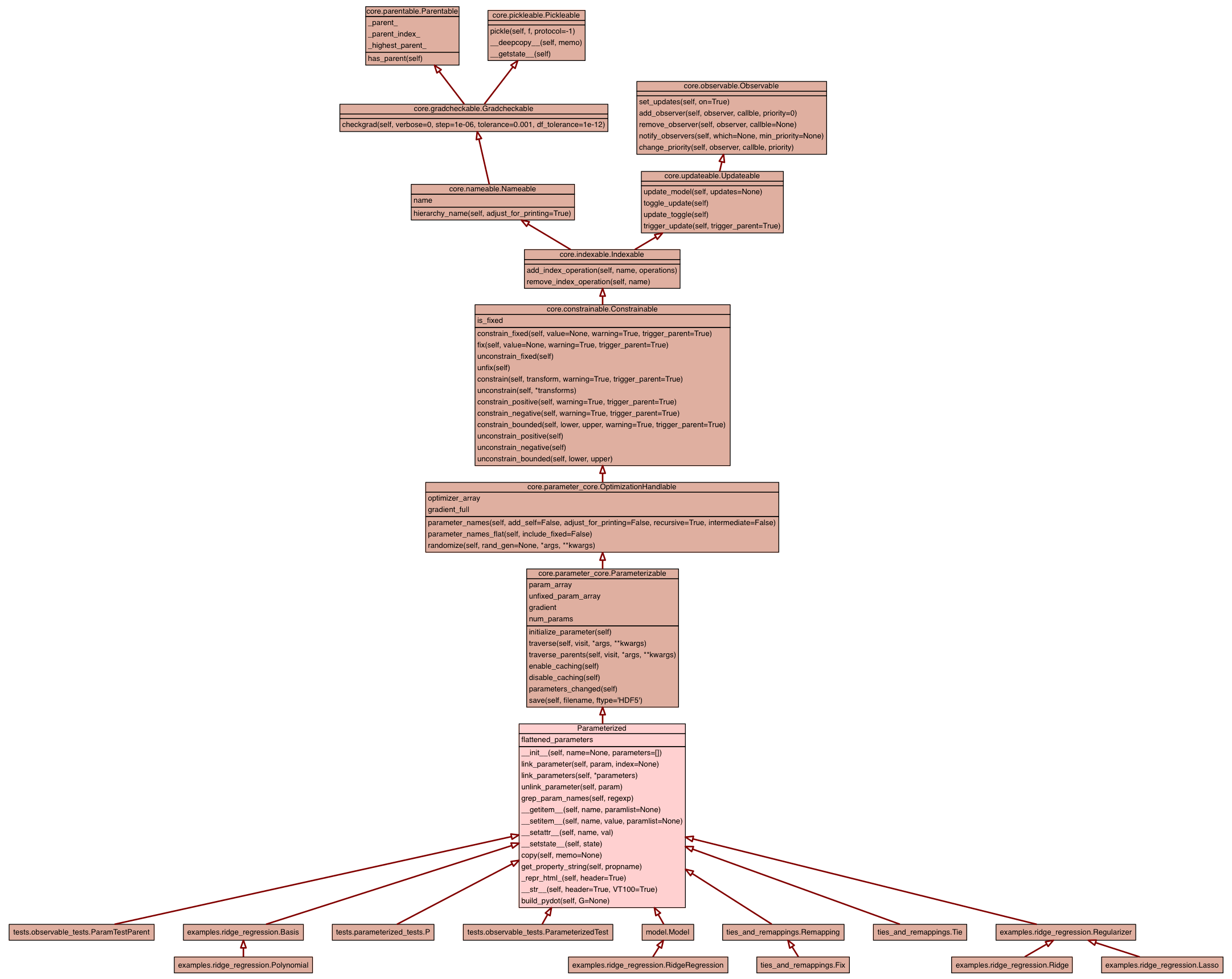Say m is a handle to a parameterized class.
|
|
__init__(self,
name=None,
parameters=[])
x.__init__(...) initializes x; see help(type(x)) for signature |
source code
|
|
|
|
link_parameter(self,
param,
index=None)
:param parameters: the parameters to add :type parameters: list of
or one :py:class:`paramz.param.Param` :param [index]: index of
where to put parameters |
source code
|
|
|
|
link_parameters(self,
*parameters)
convenience method for adding several parameters without gradient
specification |
source code
|
|
|
|
unlink_parameter(self,
param)
:param param: param object to remove from being a parameter of this
parameterized object. |
source code
|
|
|
|
|
|
|
grep_param_names(self,
regexp)
create a list of parameters, matching regular expression regexp |
source code
|
|
|
|
|
|
|
| __setitem__(self,
name,
value,
paramlist=None) |
source code
|
|
|
|
|
|
|
|
|
|
copy(self,
memo=None)
Returns a (deep) copy of the current parameter handle. |
source code
|
|
|
|
|
|
|
|
|
|
_repr_html_(self,
header=True)
Representation of the parameters in html for notebook display. |
source code
|
|
|
|
| _format_spec(self,
name,
names,
desc,
iops,
VT100=True) |
source code
|
|
|
|
|
|
|
|
|
Inherited from core.parameter_core.Parameterizable:
disable_caching,
enable_caching,
initialize_parameter,
parameters_changed,
save,
traverse,
traverse_parents
Inherited from core.parameter_core.OptimizationHandlable:
parameter_names,
parameter_names_flat,
randomize
Inherited from core.constrainable.Constrainable:
constrain,
constrain_bounded,
constrain_fixed,
constrain_negative,
constrain_positive,
fix,
unconstrain,
unconstrain_bounded,
unconstrain_fixed,
unconstrain_negative,
unconstrain_positive,
unfix
Inherited from core.indexable.Indexable:
add_index_operation,
remove_index_operation
Inherited from core.nameable.Nameable:
hierarchy_name
Inherited from core.gradcheckable.Gradcheckable:
checkgrad
Inherited from core.pickleable.Pickleable:
__deepcopy__,
__getstate__,
pickle
Inherited from core.parentable.Parentable:
has_parent
Inherited from core.updateable.Updateable:
toggle_update,
trigger_update,
update_model,
update_toggle
Inherited from core.observable.Observable:
add_observer,
change_priority,
notify_observers,
remove_observer,
set_updates
Inherited from object:
__delattr__,
__format__,
__getattribute__,
__hash__,
__new__,
__reduce__,
__reduce_ex__,
__repr__,
__sizeof__,
__subclasshook__
|

